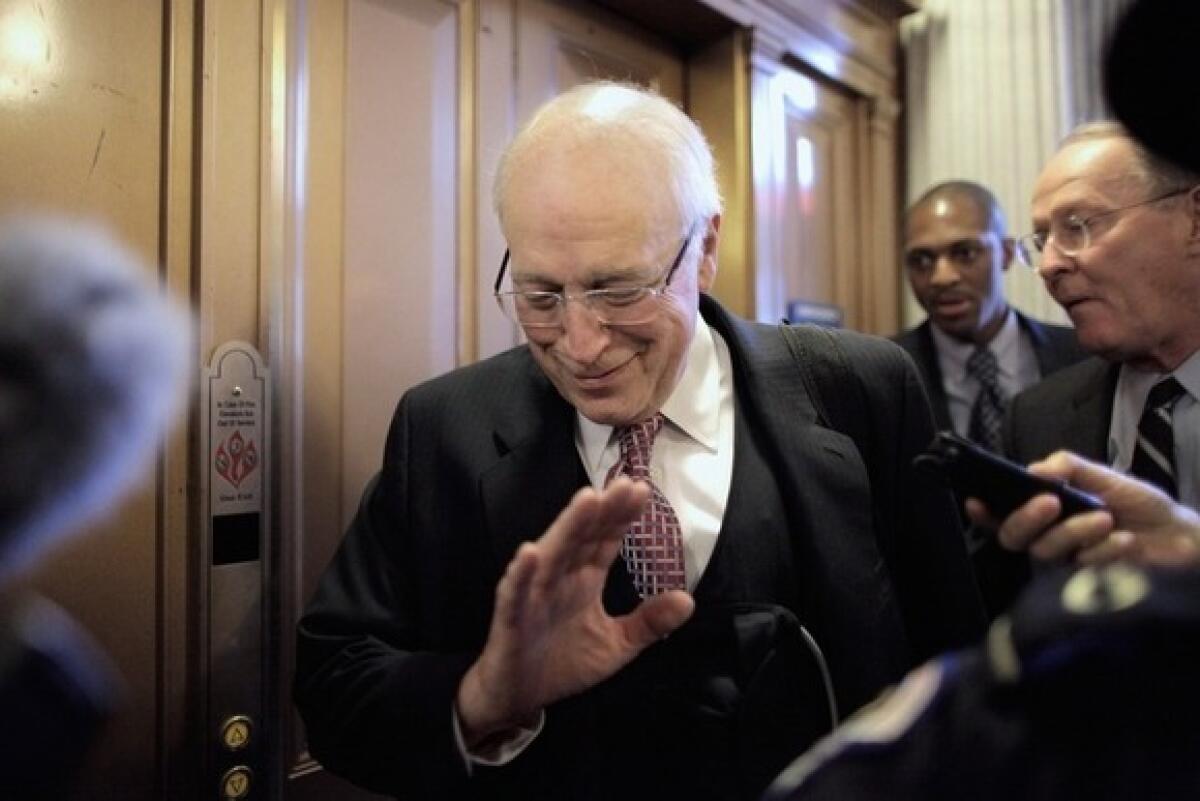Supreme Court to hear case on arrest at Dick Cheney event

Former Vice President Dick Cheney dodges reporters’ questions as he leaves the Senate Republican policy luncheon at the Capitol on Nov. 29.
The Supreme Court agreed Monday to decide whether a Secret Service agent can be held liable for arresting a Colorado man who confronted then-Vice President Dick Cheney and told him his “policies in Iraq are disgusting.”
The justices will decide whether the arrest violated the 1st Amendment because it was done in retaliation for the critical comments.
Obama administration lawyers had urged the high court to take up the case and throw out the lawsuit against the Secret Service agent. They argued that the agents protecting Cheney had acted reasonably and deserve to be shielded from personal lawsuits for doing their jobs.
In June 2006, Steven Howards spotted Cheney emerging from a shopping mall in Beaver Creek, Colo., and chatting amiably with several people. Howards approached the vice president and allegedly pushed or touched him on the shoulder as he voiced his criticism.
Nothing happened immediately, but Gus Reichle, a Secret Service coordinator on the scene, heard about the incident from other agents. He then confronted Howards, accused him of an assault and ordered his arrest.
Howards was detained for several hours and released. A harassment charge against him was dismissed.
He then sued Reichle, accusing the agent of violating his 4th Amendment rights against an unreasonable seizure and his 1st Amendment right to freedom of speech.
In March, Howards won a split decision from the U.S. Court of Appeals in Denver. Its judges said his arrest was reasonable and lawful, but they agreed that he could sue the agent on 1st Amendment grounds.
The Obama administration and lawyers for Reichle appealed to the high court and urged the justices to block the suit from going forward. They argued that it made no sense to hold that an agent could be held liable for a lawful arrest. They also said agents must be able to act quickly to protect the president and vice president, and should not fear being sued later.
The justices agreed to hear the appeal in Reichle vs. Howards and to issue a ruling by late June.
More to Read
Sign up for Essential California
The most important California stories and recommendations in your inbox every morning.
You may occasionally receive promotional content from the Los Angeles Times.











